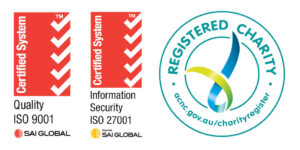What is a primary health network?
Primary health networks (PHNs) assess the health care needs of their community and commission health services to meet those needs, minimising gaps or duplication. They support health services to connect with each other to improve people’s care and strengthen the primary health care system.
PHNs were established by the Australian Government as independent organisations that manage health regions. There are 31 PHNs across Australia, 6 of which cover Victoria.
To find out more about PHNs, start here.
What we do
NWMPHN works closely with general practices, mental health, allied health and other primary health care professionals to identify service gaps. Then we collaborate to co-design and fund innovative and effective solutions that make it easier for people to get the care they need.
With a focus on at-risk members of the community, we are driven by a vision for a primary care system that is person-centred, comprehensive, coordinated, accessible, high quality and safe.
To find out more about our work, start here.
How are we funded?
NWMPHN receives annual funding from the Australian and Victorian governments.
Our primary focus is the health and wellbeing of the 1.9 million people who live within our 3,212 square-kilometre catchment area. However, we are also often tasked by our funders to design, coordinate or oversee programs that operate across the state or throughout the country.
Probity and good governance are at the heart of our organisation. To ensure best-practice and transparency in our operations we are overseen by our Board of Directors, and assisted by clinical and community councils and several expert advisory groups.
How we do this – our strategy to transform health in our region
Our approach to decision-making and resource allocation is guided by the Quintuple Aim for Health Care Improvement – a widely accepted summation of universal health practice priorities.
The Quintuple Aim holds that any health care system must deliver these outcomes:
- Improved population health
- Enhanced care experience
- Reduced costs
- Reduced practitioner burnout through better working conditions
- Improved health equity
We acknowledge that achieving these aims requires ongoing, progressive, incremental changes to the Australian health care system. We are committed to working with our partners and the community to make these changes a reality.
Why we do this
We are guided by our values of equity, respect, collaboration and innovation as we strive for better care, every day in every way.
Equity: we compile population and health data to identify service gaps and commission solutions to build health services accessible and useful to all of the 1.9 million people in our catchment.
Respect: We acknowledge that everyone brings different experiences, views and approaches to the table, and there is often no right way or wrong way. Together, we work to achieve the best outcomes for our community with the resources available.
Collaboration: We are committed to working together with our community to identify need and develop solutions. We seek to involve others to help inform and improve our work, building strength and confidence in our approach. We lean in; we listen.
Innovation: We work to find better ways to solve health care problems and address issues. We are open to new ways of thinking, being, doing and working, based on evidence, expertise and lived experience.
Our many roles
NWMPHN recognises that in health care and across communities, one size never fits all. This means that we are approach our responsibilities using different strategies, and view them through different lenses, aiming for tailored outcomes.
These can be summarised as capability building, commissioning, communicating, coordinating and championing.
To find out more, start here.







